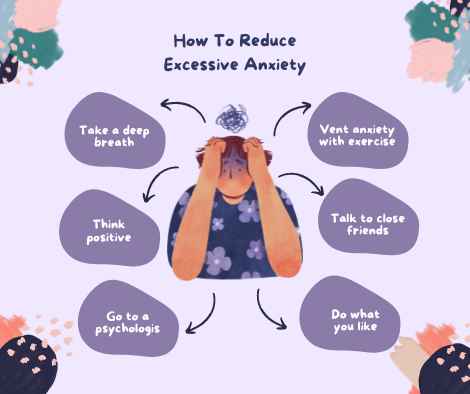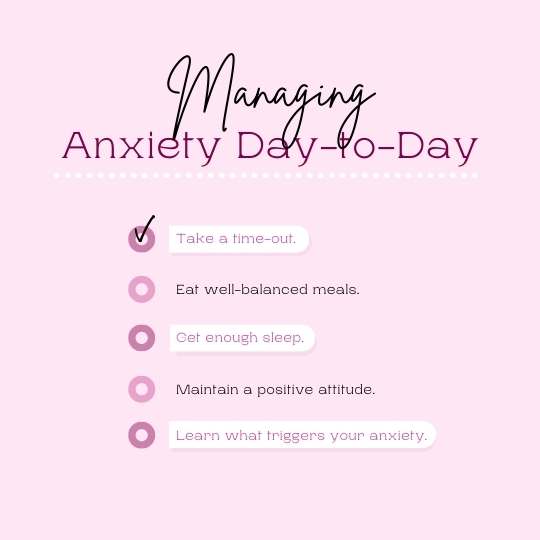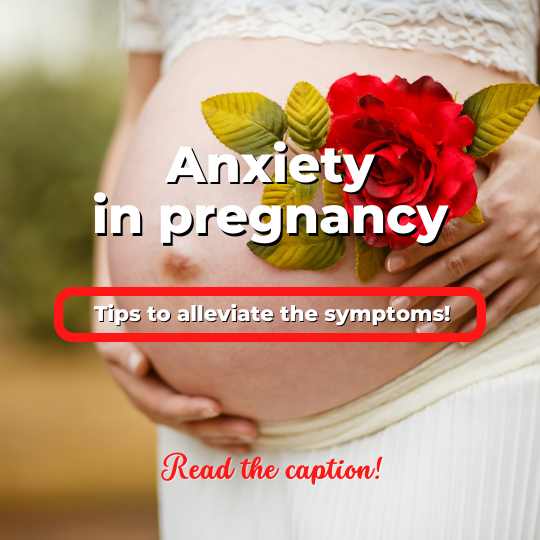Table of Contents
Overview
The period of pregnancy is life changing. You’re about to become a parent to a cute little baby. It is an emotional rollercoaster journey which is why some women feel anxiety during their pregnancy journey.
Some women are amazed by how their bodies change and become excited at every flutter or kick. Pregnancy can be difficult for some women, and they can experience fatigue, mood swings, and anxiety.
You might have noticed that as each month passes, your thought gets out of control, you feel anxious and interfere with your work performance and relationships. But how do you control your anxiety?
Causes of anxiety during pregnancy.
Due to hormonal changes, previous unfortunate miscarriages, and sleep problems, pregnant women may develop anxiety. They typically worry about the health of their unborn child, the labor and delivery procedure, their relationships with friends and family, and how having a baby will affect those connections or the financial burden of growing a family.
22 Weird pregnancy cravings : why and when do they start
All these thoughts are valid. Everybody need a certain amount of worry to function; otherwise, how would we push ourselves to complete our duties or run away from a bear?
How Stress and anxiety affects Pregnancy.
High level of stress can cause high blood pressure, which raises the risk of preterm labor or having an underweight baby at delivery. Emotional stress during pregnancy may impact a child’s cognitive development and cause attention issues, behavioural issues, or a rise in negative emotions.
Additionally, researchers have discovered that prenatal stress or anxiety might influence adolescent and childhood development. Anxiety disorders in mothers may make it more likely for their children to experience anxiety.
The Effects of Anxiety on the Foetus.
It’s vital to consider both the risks of treatment and the adverse effects of untreated anxiety when planning your approach to anxiety management.
30 Essential and productive things to do on maternity leaves
Anxiety may have detrimental effects on both the mother and the fetus, although being less well understood than depression. Preterm birth, low birth weight, early gestational age, and a smaller head circumference (connected to brain size) are all risks that anxiety raises.
How Much Anxiety is Normal Throughout Pregnancy?
Being anxious is a normal human emotion and not just a side effect of pregnancy. We all worry, and being pregnant frequently makes those fears worse.
Some women, particularly those who have experienced previous miscarriages or fertility issues, are concerned about the health of their unborn children. Others may be worried about their ability to be good parents, how their partnerships will alter, how their siblings will respond to a new child or the financial implications of having a child.

However, there is a distinction between common worry and prenatal anxiety, a constant worry during pregnancy. Suppose your anxiety makes it difficult for you to focus, making you feel highly panicky or creating some physical symptoms like a rapid heartbeat and shortness of breath. In that case, it’s time to speak with a healthcare professional.
The Symptoms of Anxiety During Pregnancy.
Although worrying about your baby’s health is normal, there are times when this worry becomes crippling and necessitates further care.
When do you start getting morning sickness and how to deal with it?
Physical signs of anxiety can also include a quick heartbeat, trouble breathing, or panic attacks.
Anxiety may manifest itself after birth or at any point during a pregnancy. The first trimester appears to have the highest rates of generalized anxiety, probably because of hormonal changes.
Constant worrying, restlessness, muscle tightness, impatience, a sense of dread, an inability to concentrate, and trouble falling asleep owing to anxiety are some of the most typical anxiety symptoms during this time.
Some women may experience significantly worse symptoms from a combination of anxiety disorders, such as post-traumatic stress disorder and obsessive-compulsive disorder.
9 Month Pregnancy Exercise for Normal Delivery and FAQs
How to Reduce Anxiety During Pregnancy. 11 ways to manage it
Anyone can experience anxiety during pregnancy. Accordingly, depending on the level of stress you experience, therapeutic techniques, as well as dietary and lifestyle adjustments, may be able to offer some relief. Below are some of the ways to ease anxiety during one’s pregnancy.
1. Ask for a hand
If you’re feeling overburdened, ask friends or relatives for assistance with diaper shopping, nursery set up, or picking up the bag of gently used pregnancy clothing your friend is giving you.
21 foods to avoid during pregnancy – What not to eat
In other words, feel free to ask for assistance if there is work you can delegate. People will probably be happy to help you, making you feel less anxious throughout your pregnancy.
2. Journaling
You might only sometimes feel like speaking. All those ideas require a place to go. Consider keeping a notebook to express your emotions without worrying about being judged.
What are the healthy meals for pregnancy (Breakfast, Lunch and Dinner)
Writing your ideas and emotions will help you prioritize or arrange your concerns. You can keep track of several triggers and share them with your doctor.

3. Explore Cognitive Behavioural Therapy
Cognitive behavioural therapy (CBT) aims to stop negative cycles such as these by breaking down things that make you feel bad, anxious or scared. By making your problems more manageable, CBT can help you change your negative thought patterns and improve the way you feel.
4. Employ Relaxation Techniques
Some relaxation techniques like prenatal yoga, acupuncture, and meditation are beneficial techniques for easing anxiety symptoms throughout pregnancy.
5. Make Dietary Changes
A balanced, nutrient-rich diet is what you should strive for because it has been shown to help with anxiety symptoms. To maintain healthy brain function, doctors advise including omega-3-rich foods like salmon (a form of seafood low in mercury) in your meals.
Additionally, consume sugar and coffee in moderation, as these may cause or exacerbate feelings of stress.
6. Find a Daily Release
Exercise is safe if your obstetrician-gynaecologist approves because the hormones you release when you exercise are excellent for reducing tension and anxiety. Try low-impact exercises like daily walks, yoga, or meditation to help slow your thoughts and feel rooted in your body.
7. Prioritize Rest.
When you’re anxious or stressed, you need more sleep to help your body and brain recover. Doctors typically advise getting a solid eight to ten hours of sleep during pregnancy.
How can you prepare for labor and childbirth: 20 tips to prepare yourself
You might need to set aside some time for a nap throughout the day because pregnancy might make it challenging to get a good night’s sleep owing to increased urination frequency, pain, acid reflux, and restless leg syndrome.
It’s also advised to use a pregnancy pillow while you sleep to ease back pain and follow a screen-free evening wind-down regimen that includes activities like yoga, reading, and journaling.
8. Try to control what you can
The adrenaline rush will subside if you engage in any activity that makes you feel more in control. Try organizing your wallet or paying bills, cleaning your desk or closet, or balancing what you can manage with what you don’t.

9. Talk it Out
While it may seem like you’re the only pregnant person to feel freaked out about-facing labor, you’re far from alone. Many pregnant women undoubtedly have the same ideas as you do. So be supportive of ladies who are expecting or recently became parents.
Are you worried about labor? 9 Signs of labor nearing or coming soon!
You can manage your stress throughout pregnancy by discussing your feelings with others and selecting compatible partners.
10. Try a Rhythmic Activity.
Because you know what to expect next, these activities can help you centre yourself and relax your mind. One can feel calmer by engaging in activities like listening to slow music—particularly, music slower than your heartbeat, approximately 72 beats per minute, jogging, or rewatching a favourite film or television show.
11. Empower Yourself
Anxiety during pregnancy can be significantly reduced by being gentle with oneself. Try to take pauses or naps during the day. Affirmations help you relax. Additionally, strive to recognize perfectionism and avoid having too high expectations for your family or yourself. Also, If your anxiety is related to giving birth, you might want to enrol in a birth class. The process may seem less mysterious if you know the various phases of labor.
When Should You See My Doctor For Anxiety During Pregnancy?
If you are pregnant, let your doctor know if you encounter any anxiety symptoms, no matter how minor they may be. They can advise you on managing those feelings and watch for any signals that your anxiety worsens as your pregnancy progresses.
Epidural during labor: Side effects of Epidural
Call your doctor immediately if your anxiety is interfering with your everyday activities or if you are experiencing frequent panic episodes.
The best thing you can do to keep yourself and your child safe and healthy is to ask for help.
Can anxiety during pregnancy affect the baby?
Getting help and effectively managing anxiety during pregnancy is crucial because it can impact the baby’s development and raise the risk of preterm birth or low birth weight.
What can I take naturally for anxiety while pregnant?
Practice relaxation methods like deep breathing, exercise regularly, make dietary changes and investigate alternative treatments like prenatal yoga with a qualified practitioner for anxiety during pregnancy.
Conclusion
During pregnancy and after, stress management is beneficial to both your health and that of your unborn child. If you can control your stress, you can lower your risk of giving birth too soon and your baby’s risk of developing childhood allergies and asthma.
Additionally, your pregnancy will probably be a more enjoyable experience overall when you manage your stress. Having stress management techniques and managing your life’s stresses well throughout pregnancy may also help you with new strains that arise after giving birth.





